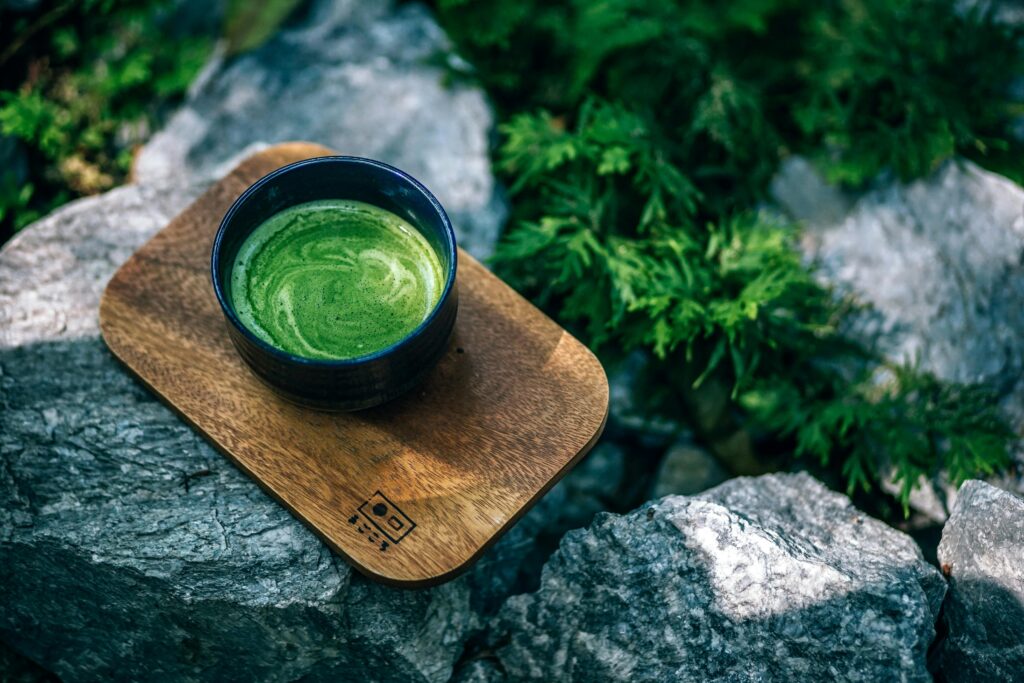Green tea brain benefits are gaining attention among health-conscious individuals. This powerful beverage doesn’t just energize — it can significantly boost your brain health, memory, and focus when consumed regularly.
From improving memory and focus to potentially protecting against age-related cognitive decline, the compounds found in green tea—particularly L-theanine and catechins—play a fascinating role in supporting the brain.
In this post, we’ll explore the science-backed benefits of green tea for the brain, how to consume it for optimal results, and why making it part of your daily routine could be one of the smartest decisions for your mental performance.
1. Green Tea and Cognitive Function: What the Research Says
Multiple studies suggest that regular consumption of green tea can enhance various aspects of cognitive function, including attention, memory, and reaction time.
- A 2014 study published in Psychopharmacology found that individuals who consumed green tea extract showed improved working memory during MRI testing.
- L-theanine, a unique amino acid found almost exclusively in green tea, has been shown to increase alpha brain wave activity, which is associated with a calm but alert mental state.

2. Balance Between Calm and Focus
One of the most remarkable benefits of green tea is its ability to create a balance between relaxation and alertness. This is primarily thanks to L-theanine, which modulates levels of dopamine and serotonin, helping improve mood and attention.
Unlike coffee, which can cause jitters and crashes, green tea offers a smoother, more sustainable energy lift due to the combination of caffeine and L-theanine.

3. Powerful Antioxidants That Support Brain Health
Green tea is rich in polyphenols, particularly a group known as catechins, with epigallocatechin gallate (EGCG) being the most powerful.
These antioxidants may help:
- Reduce oxidative stress in the brain
- Combat inflammation, a key contributor to neurodegenerative diseases
- Support the growth of new brain cells (neurogenesis)
4. Can Green Tea Help Prevent Cognitive Decline?
Research suggests that long-term green tea drinkers have a lower risk of developing Alzheimer’s disease and other forms of dementia.
- A Japanese study involving over 1,000 participants found that those who drank green tea daily had significantly lower rates of cognitive impairment.
While green tea isn’t a cure or guaranteed prevention, incorporating it into a balanced lifestyle may be a natural strategy to protect long-term brain health.
5. Best Time to Drink Green Tea for Brain Benefits
To maximize the cognitive benefits, consider:
- Morning or early afternoon: Enhances focus and productivity during active hours.
- Mid-afternoon: Helps avoid the post-lunch energy dip without disrupting sleep.
Avoid drinking it late at night due to its mild caffeine content.
6. How Much Green Tea Should You Drink?
Most studies suggest that drinking 2 to 3 cups per day is enough to experience the brain-boosting effects, though individual sensitivity to caffeine varies.
Preferably choose high-quality, organic green tea and avoid sweetened bottled versions that may contain sugar or preservatives.
7. Best Types of Green Tea for Mental Clarity
Not all green teas are created equal. Some of the best types for cognitive support include:
- Matcha – contains the highest concentration of antioxidants and L-theanine
- Sencha – great balance of flavor and health benefits
- Gyokuro – a premium shade-grown tea with rich umami flavor and nutrients

Helpful Sources
1. Green Tea’s Potential as a “Cognitive Enhancer”
- This article from Healthline, a well-known health information site, breaks down the key compounds in green tea—like L-theanine and caffeine—and explains how they work together to improve brain function, mood, and memory.
2. Green Tea, Brain Health, and Alzheimer’s Prevention
- This review from the National Center for Biotechnology Information (NCBI), a highly respected source for biomedical literature, discusses the neuroprotective properties of EGCG, a powerful antioxidant in green tea. It explores the potential role of green tea in preventing neurodegenerative diseases like Alzheimer’s and Parkinson’s.
3. The Effects of L-theanine and Caffeine in Green Tea on Brain Function
- A scientific study from the Journal of Medicinal Food examines the combined effects of L-theanine and caffeine. This research provides a detailed look at how these compounds affect cognitive performance, attention, and alertness.
Conclusion: A Smart Sip for a Sharper Mind
With its combination of calming and stimulating compounds, green tea is one of the few natural beverages that supports your brain from multiple angles. Whether you’re a student, a professional, or simply someone who wants to maintain mental clarity as you age, adding green tea to your routine can be both enjoyable and beneficial.
So the next time you feel mentally foggy or need a gentle lift, reach for a cup of green tea—your brain might just thank you for it.
Disclaimer
This article is for informational purposes only and is not intended as medical advice.
The content is based on publicly available research and traditional usage.
Always consult your doctor or a qualified health professional before making changes to your diet, especially if you have a medical condition or are taking medications.

